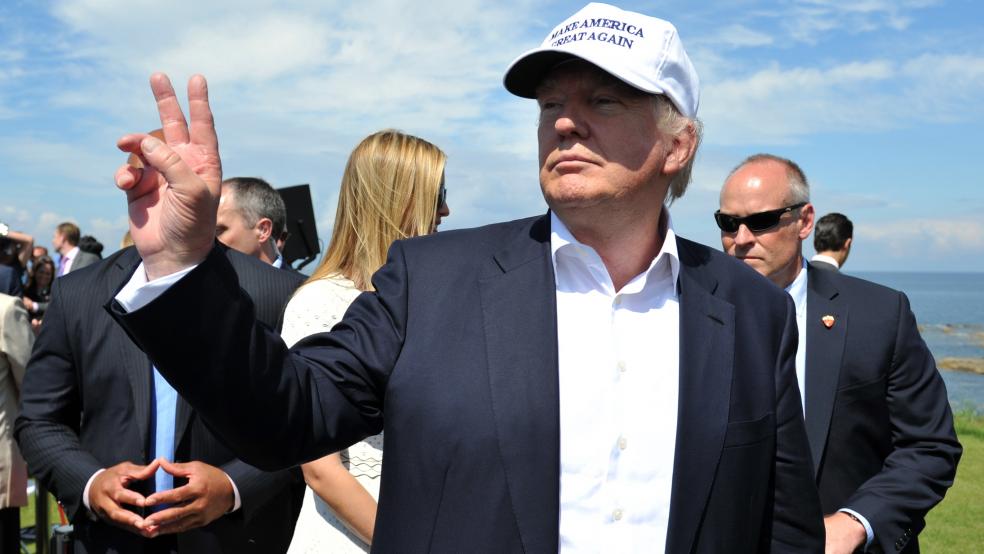The impact of the decision by the people of the United Kingdom to part ways with the European Union -- a move with massive and largely unpredictable economic and political effects -- was felt almost immediately in the presidential race on this side of the Atlantic, highlighting the striking parallels between the successful exit campaign and the political success of Donald Trump.
Trump, the presumptive Republican presidential nominee, happened to be in Scotland when the results of the Thursday referendum were announced, and he treated the 52 percent to 48 percent victory of the “Brexit” side as a sort of personal triumph. It was, he suggested, a victory for the sort of anti-immigration nationalism that he has been successfully preaching in the United States.
Related: 3 Ways the Brexit Affects You
“They’re angry over borders, they’re angry over people coming into the country and taking over, nobody even knows who they are,” Trump said at a press conference at the Turnberry golf resort, a Trump-branded property on Scotland’s western coast. “They’re angry about many, many things. They took back control of their country. It’s a great thing.”
That anger, he said, is not limited to the United Kingdom. “People are angry all over the world,” he said.
And at a time when most politicians would be offering words meant to calm a volatile situation, Trump blithely speculated that the collapse of the entire EU “looks like it’s on its way.”
“So I could see it happening. I have no opinion, really, but I could certainly see it happening. I saw this happening. I could read what was happening here and I could see things happening in Germany.
"I hope they straighten out the situation because you know it can really be very nasty. What’s going on can be really, really nasty," he said.
Related: An Anti-Trump Conservative Group Sharpens Its Knives
In a statement released by his campaign, he pledged that as president he would “strengthen our ties with a free and independent Britain” and tied the vote directly to the upcoming presidential election.
“Come November, the American people will have the chance to re-declare their independence,” he said. “Americans will have a chance to vote for trade, immigration and foreign policies that put our citizens first. They will have the chance to reject today’s rule by the global elite, and to embrace real change that delivers a government of, by and for the people. I hope America is watching, it will soon be time to believe in America again.”
While the British public and the American public are, obviously, distinctly different demographics, the success of the Brexit campaign speaks to the power of appeals to emotion rather than facts and logic -- a hallmark of Trump’s run for the presidency.
Related: Trump Goes All-in, Forgives $50 Million in Campaign Loans
The British public voted to leave the EU even in the face of dire warnings from economists that severing its connection to the largest free market in the world would result in a diminished economy. Warnings from experts in foreign policy that Britain was safer and stronger in alliance with the rest of Europe were likewise ignored.
The parallels to Trump are impossible to miss. Virtually all economists not associated with his campaign predict economic calamity, including spiraling debt and reduced economic growth, if his policies are put in place. Experts in foreign policy have warned that Trump’s proposed withdrawal from the international stage and tariff-driven trade policy would reduce American standing in the world -- indeed, foreign leaders and diplomats have long been expressing concern about the impact of a Trump presidency.
As if to underscore his parochial view of foreign affairs, on Thursday, Trump also found a way to relate the Brexit vote to his own financial interests. Asked about tanking financial markets and wild swings in relative currency values, especially the British pound, he professed not to be worried at all.
“When the pound goes down, more people are coming to Turnberry, frankly,” he said. “For traveling and for other things, I think it very well could turn out to be a positive.”





